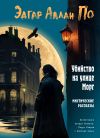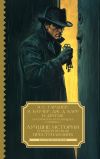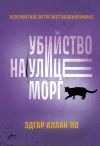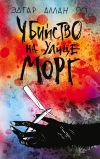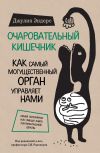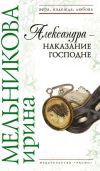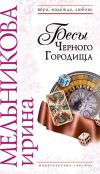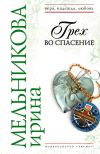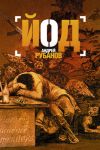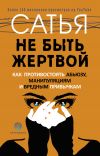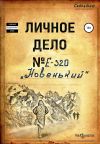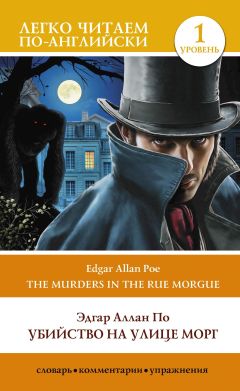
Автор книги: Эдгар По
Жанр: Зарубежные детективы, Зарубежная литература
Возрастные ограничения: 16+
сообщить о неприемлемом содержимом
Эдгар А. По
Убийство на улице Морг. Уровень 1 / The Murders in the Rue Morgue
© С. А. Матвеев, адаптация текста, коммент., упраж. и словарь, 2023
© ООО «Издательство АСТ», 2023
The Murders in the Rue Morgue

We can hardly analyse our mental features[1]1
mental features – аналитические способности
[Закрыть]. We appreciate them only in their effects[2]2
in their effects – по результатам
[Закрыть]. We know, that they are a source of the largest enjoyment. As the athlete finds his delight in the hardest exercises, so the analyst finds pleasure in enigmas, conundrums, and hieroglyphics. An ordinary man thinks that it is just magic. The wonderful results have, in truth[3]3
in truth – по правде говоря
[Закрыть], the whole air of intuition.
The faculty of resolution can possibly exist thanks to the mathematical study, and especially to that highest branch of it which is called analysis. But to calculate does not mean to analyse. A chess-player, for example, calculates but he does not analyse. So the game of chess is greatly misunderstood. I am not now writing a treatise, but I am sure that the game of draughts[4]4
the game of draughts – игра в шашки
[Закрыть] is much cleverer than chess. In chess, what is only complex is mistaken (a not unusual error[5]5
a not unusual error – как это обычно бывает
[Закрыть]) for what is profound. The most important thing here is attention. If an oversight is committed, there is a defeat. The chances of such oversights are multiplied; and in nine cases out of ten[6]6
in nine cases out of ten – в девяти случаях из десяти
[Закрыть] it is the more concentrative rather than the more acute player who conquers. In draughts, on the contrary, where the moves are unique, less attention is required. To be less abstract-let us suppose a game of draughts where the pieces are reduced to four kings[7]7
where the pieces are reduced to four kings – где остались только четыре дамки
[Закрыть], and where, of course, no oversight is to be expected. It is obvious that here the victory can come only by the good movement, the result of some strong exertion of the intellect. The analyst tries to understand the spirit of his opponent, identifies himself therewith[8]8
identifies himself therewith – ставит себя на его место
[Закрыть], and very often sees thus, at a glance[9]9
at a glance – с одного взгляда
[Закрыть], the sole simple methods by which he may hurry into miscalculation.
Whist[10]10
whist – вист (игра)
[Закрыть] is famous for its calculating power; and men of the highest order of intellect are known to play it, while eschewing chess as frivolous. Beyond doubt it demands the faculty of analysis. The best chess-player in the world is merely the player of chess; but proficiency in whist implies capacity for success, here mind struggles with mind. I mean that perfection in the game which includes a comprehension of all the sources which lead to the victory. This is inaccessible to the ordinary understanding. To observe attentively is to remember distinctly; and, so far[11]11
so far – следовательно
[Закрыть], the concentrative chess-player will do very well at whist. People think that to play well just means to know how to play. But the analyst makes, in silence, many observations and inferences. So, perhaps, do his companions; and the difference lies in the quality of the observation. Our player examines the face of his partner, comparing it carefully with that of each of his opponents. He notices the cards in each hand; often guessing them through the glances bestowed by their holders upon each[12]12
through the glances bestowed by their holders upon each – по взглядам, какие на них бросают
[Закрыть]. He notes every variation of face as the play progresses, thinking about the expression of certainty, of surprise, of triumph, or of chagrin.
The analytical power should not be confounded with simple ingenuity; for while the analyst is necessarily ingenious, the ingenious man is often incapable of analysis. Between ingenuity and the analytic ability there exists a difference far greater, indeed, than that between the fancy and the imagination. In fact, the ingenious are always fanciful, and the truly imaginative are often analytic.
The story which follows will prove to the reader these words.
During the spring and part of the summer of 18-, I lived in Paris, and there I became acquainted with a Monsieur C. Auguste Dupin[13]13
Monsieur C. Auguste Dupin – господин С.-Огюст Дюпен
[Закрыть]. This young gentleman was of an excellent family, but, by a variety of some events, lost nearly all his money. He had a small part of his patrimony[14]14
patrimony – отцовское наследство
[Закрыть]; and he managed to survive. Books, indeed, were his only luxuries, and in Paris the books are easily obtained.
Our first meeting was at the library in the Rue Montmartre[15]15
Rue Montmartre – улица Монмартр
[Закрыть], where we both looked for the same very rare and very remarkable volume. After that, we saw each other again and again. I was deeply interested in his family history which he told me. I was astonished at his mind, and I notices the vivid freshness of his imagination. I felt that the society of such a man would be to me a treasure beyond price[16]16
would be to me a treasure beyond price – будет неоценимой для меня находкой
[Закрыть]. We decided to live together during my stay in the city; and I rented a grotesque mansion in a desolate portion of the Faubourg St. Germain[17]17
in a desolate portion of the Faubourg St. Germain – в уединённом уголке Сен-Жерменского предместья
[Закрыть].
Our seclusion was perfect. We admitted no visitors. Indeed the locality of our retirement was a secret from my friends; and Dupin left Paris very gladly.
My new friend adored the night. So we tried to make the night longer. At the first dawn of the morning we closed all the shutters of our old building. Then we read, wrote, or talked, waiting for the true Darkness. Then we went out, continuing our conversation.
At such times I could not help admiring[18]18
I could not help admiring – я не мог не восхищаться
[Закрыть] a peculiar analytic ability in Dupin. He seemed, too, to be very proud of it. He boasted to me that most men, in respect to himself, were very simple, and that he could understand them very well. His manner at these moments was frigid and abstract; his eyes were empty. Observing him in these moods, I often thought about two different Dupins-the creative and the resolvent.
Once we looked over an evening edition of the “Gazette des Tribunaux,”[19]19
“Gazette des Tribunaux” – «Судебная газета»
[Закрыть] when the following paragraphs drew our attention.
“EXTRAORDINARY MURDERS.
This morning, about three o’clock, the inhabitants of the Quartier St. Roch[20]20
Quartier St. Roch – квартал Сен-Рок
[Закрыть] were aroused from sleep by a succession of terrific shrieks. The shrieks came, apparently, from the fourth story of a house in the Rue Morgue[21]21
Rue Morgue – улица Морг
[Закрыть], where Madame L’Espanaye[22]22
Madame L’Espanaye – мадам Л’Эспанэ
[Закрыть], and her daughter, Mademoiselle Camille L’Espanaye[23]23
Mademoiselle Camille L’Espanaye – мадемуазель Камилла Л’Эспанэ
[Закрыть], lived. After some delay, the gateway was broken, and eight or ten of the neighbors entered, accompanied by two gendarmes. By this time the cries ceased; but, as the party rushed up the first flight of stairs, two or more rough voices were distinguished, and seemed to proceed from the upper part of the house. As the second landing was reached, these sounds, also, ceased, and everything remained perfectly quiet. The party hurried from room to room. When the people came to the large back chamber in the fourth story, (the door of which, locked with the key inside, was forced open[24]24
was forced open – была взломана
[Закрыть],) everybody was struck with horror than with astonishment.
“The apartment was in the wildest disorder-the furniture broken and thrown about in all directions. There was only one bedstead; and from this the bed was removed, and thrown into the middle of the floor. On a chair lay a razor, besmeared with blood. On the hearth were two or three long and thick tresses of grey human hair, also dabbled in blood. Upon the floor were found four Napoleons[25]25
four Napoleons – четыре наполеондора
[Закрыть], an earring of topaz, three large silver spoons, and two bags, containing nearly four thousand francs in gold. The drawers of a bureau, which stood in one corner, were open. A small iron safe was discovered under the bed (not under the bedstead). It was open, with the key still in the door. It had a few old letters, and other papers.
“Madame L’Espanaye disappeared; but a search was made in the chimney, and the corpse of the daughter was dragged therefrom[26]26
was dragged therefrom – был оттуда вытащен
[Закрыть]. The body was quite warm. Upon the face were many severe scratches, and, upon the throat, dark bruises, and deep indentations of finger nails, as if the victim was throttled to death[27]27
as if the victim was throttled to death – как будто жертву задушили
[Закрыть].
“After a thorough investigation of every portion of the house, the party came into a small paved yard in, where lay the corpse of the old lady, with her throat so entirely cut that, upon an attempt to raise her, the head fell off. The body, as well as the head, was fearfully mutilated.
“To this horrible mystery there is not as yet, we believe, the slightest clue.”
The next day’s paper had these additional particulars.
“The Tragedy in the Rue Morgue.
Many individuals were examined in relation to this most extraordinary and frightful affair, but nothing threw light upon it.
“Pauline Dubourg[28]28
Pauline Dubourg – Полина Дюбур
[Закрыть], laundress, deposes that she knew both the deceased for three years, washed for them during that period. The old lady and her daughter were very affectionate towards each other. She could not say anything in regard to their mode or means of living. She believed that Madame L. was a fortune-teller. She never met any persons in the house when she came for the clothes or took them home. She is sure that they had no servant.
“Pierre Moreau[29]29
Pierre Moreau – Пьер Моро
[Закрыть], tobacconist[30]30
tobacconist – владелец табачной лавки
[Закрыть], says that he sold small quantities of tobacco to Madame L’Espanaye for nearly four years. The deceased and her daughter occupied the house in which the corpses were found, for more than six years. It was formerly occupied by a jeweller, who underlet the upper rooms[31]31
who underlet the upper rooms – который сдавал верхние комнаты
[Закрыть] to various persons. The house was the property of Madame L. The old lady was childish. The witness saw the daughter five or six times during the six years. He heard that Madame was a fortune-teller, but he did not believe it. He never seen any person enter the door except the old lady and her daughter, a porter once or twice, and a doctor eight or ten times.
“Many other persons and neighbors, gave evidence to the same effect. Nobody heard about friends of Madame L. and her daughter. The shutters of the front windows were seldom opened. The shutters in the rear were always closed, with the exception of the large back room, fourth story. The house was a good house-not very old.
“Isidore Muse1t[32]32
Isidore Muse1t – Изидор Мюзе
[Закрыть], gendarme, deposes that he was called to the house about three o’clock in the morning, and found twenty or thirty persons at the gateway. He forced it open, with a bayonet-not with a crowbar. The shrieks were heard until the gate was forced-and then suddenly ceased. They were screams of some person (or persons) in great agony-were loud, not short and quick. Upon reaching the first landing, he heard two voices in loud and angry contention-the one a gruff voice, the other much shriller-a very strange voice. He could distinguish some words of the former, which was that of a Frenchman. He is sure that it was not a woman’s voice. He could distinguish the words ‘sacre2’ and ‘diable.’[33]33
the words ‘sacre2’ and ‘diable’ – слова «проклятие» и «чёрт» (франц.)
[Закрыть] The shrill voice was the foreigner’s voice. He was not sure whether it was the voice of a man or of a woman. He thinks it was Spanish language.
“Henri Duval[34]34
Henri Duval – Анри Дюваль
[Закрыть], a neighbor, a silver-smith[35]35
a silver-smith – серебряник, серебряных дел мастер
[Закрыть], сorroborates the testimony of Muse1t in general. The shrill voice, this witness thinks, was that of an Italian. He is sure that it was not French. He is not sure that it was a man’s voice. It can be a woman’s voice. He does not know Italian, so he could not distinguish the words, but was convinced by the intonation that the speaker was an Italian. He knew Madame L. and her daughter. He is sure that the shrill voice was not that of either of the deceased[36]36
voice was not that of either of the deceased – голос не принадлежал ни той, ни другой
[Закрыть].
“Odenheimer, restaurateur[37]37
Odenheimer, restaurateur – Оденгеймер, ресторатор
[Закрыть]. He does not speak French, he was examined through an interpreter. He is from Amsterdam. He passed the house at the time of the shrieks. They lasted for several minutes-probably ten. They were long and loud-very awful and distressing. He is sure that the shrill voice was that of a man-of a Frenchman. He could not distinguish the words. They were loud and quick. The voice was harsh, he cannot call it a shrill voice. The gruff voice said repeatedly ‘sacre2,’ ‘diable,’ and once ‘mon Dieu![38]38
‘mon Dieu! – Боже мой! (франц.)
[Закрыть]‘
“Jules Mignaud[39]39
Jules Mignaud – Жюль Миньо
[Закрыть], banker, of the firm of Mignaud et Fils, Rue Deloraine[40]40
the firm of Mignaud et Fils, Rue Deloraine – фирма «Миньо и сыновья» на улице Делорен
[Закрыть]. He is the elder Mignaud. Madame L’Espanaye had some property. She made frequent deposits in small sums. The third day before her death, she took out in person[41]41
she took out in person – лично забрала со счёта
[Закрыть] the sum of 4000 francs. This sum was paid in gold, and a clerk went home with the money.
“Adolphe Le Bon, clerk to Mignaud et Fils[42]42
Adolphe Le Bon, clerk to Mignaud et Fils – Адольф Лебон, конторщик фирмы «Миньо и сыновья»
[Закрыть]. About noon, he accompanied Madame L’Espanaye to her residence with the 4000 francs, put up in two bags. The door opened, Mademoiselle L. appeared and took from his hands one of the bags. He then bowed and departed. He did not see any person in the street at the time. It is a very lonely street.
“William Bird[43]43
William Bird – Уильям Берд
[Закрыть], tailor, an Englishman. He lived in Paris two years. He ascended the stairs and heard the voices. The gruff voice was that of a Frenchman. He cannot remember all the words. He heard distinctly ‘sacre2’ and ‘mon Dieu.’ There was a scraping and scuffling sound. The shrill voice was very loud-louder than the gruff one. He is sure that it was not the voice of an Englishman, maybe that of a German. He does not understand German.
“Four of the above-named witnesses[44]44
four of the above-named witnesses – четверо из числа означенных свидетелей
[Закрыть] deposed that the door of the chamber in which was found the body of Mademoiselle L. was locked on the inside. Everything was perfectly silent. When they entered, there was nobody in the room. A door between the two rooms was closed, but not locked. The door leading from the front room into the passage was locked, with the key on the inside. A small room in the front of the house, on the fourth story, was open. This room was crowded with old beds, boxes, and so on. The house was a four story one, with garrets. The time between the hearing of the voices and the breaking open of the room door, was three – five minutes. The door was opened with difficulty.
“Alfonzo Garcio, undertaker[45]45
Alfonzo Garcio, undertaker – Альфонсо Гарсио, гробовщик
[Закрыть], resides in the Rue Morgue. He is Spanish. He heard the voices, too. The gruff voice was that of a Frenchman. The shrill voice was that of an Englishman-he is sure of this. He does not understand the English language, but judges by the intonation.
“Alberto Montani, confectioner[46]46
Alberto Montani, confectioner – Альбертo Монтани, владелец магазина готового платья
[Закрыть], he was among the first to ascend the stairs. He heard the voices. The gruff voice was that of a Frenchman. He distinguished several words. The speaker was expostulating. The second one spoke quickly. It may be the voice of a Russian. He is an Italian.
“Several witnesses testified that the chimneys of all the rooms on the fourth story were too narrow. By ‘sweeps’ were meant cylindrical sweeping-brushes, such as are employed by those who clean chimneys. The body of Mademoiselle L’Espanaye was so firmly wedged in the chimney that it could not be got down until four or five of the party united their strength[47]47
it could not be got down until four or five of the party united their strength – его удалось вытащить только общими усилиями четырех или пяти человек
[Закрыть].
“Paul Dumas[48]48
Paul Dumas – Поль Дюма
[Закрыть], physician, deposes that he was called to view the bodies. They were both then lying in the chamber where Mademoiselle L. was found. The corpse of the young lady was much bruised and excoriated. The throat was greatly chafed. There were several deep scratches just below the chin. The face was fearfully discolored. In the opinion of M. Dumas[49]49
in the opinion of M. Dumas – по мнению г-на Дюма
[Закрыть], Mademoiselle L’Espanaye was throttled to death by some person or persons. The corpse of the mother was horribly mutilated. All the bones of the right leg and arm were shattered. Whole body dreadfully bruised and discolored. It was not possible to say how the injuries was inflicted. The head of the deceased was entirely separated from the body. The throat was cut with some very sharp instrument-probably with a razor.
“Alexandre Etienne[50]50
Alexandre Etienne – Александр Этьенн
[Закрыть], surgeon, was called with M. Dumas to view the bodies. He corroborated the testimony, and the opinions of M. Dumas.
A murder so mysterious was never before committed in Paris. There is not, however, the shadow of a clue apparent.”
The evening edition of the paper stated that the greatest excitement still continued in the Quartier St. Roch. A postscript, however, mentioned that Adolphe Le Bon was arrested and imprisoned.
Dupin seemed singularly interested and he asked me my opinion about the murders.
I saw no means by which it would be possible to trace the murderer.
“We must not judge of the means,” said Dupin. “The Parisian police are cunning, but no more. There is no method in their proceedings. Simple diligence and activity. Truth is not always in a well. Let us take the contemplation of the heavenly bodies. It is possible to make even Venus herself vanish by a scrutiny too concentrated, or too direct.
“As for these murders, let us enter into some examinations for ourselves, before we make a decision. We will go and see the premises with our own eyes. I know the Prefect of Police[51]51
Prefect of Police – префект полиции
[Закрыть], and we shall have no difficulty to obtain the necessary permission.”
The permission was obtained, and we proceeded to the Rue Morgue. This is one of those miserable streets which intervene between the Rue Richelieu[52]52
Rue Richelieu – улицa Ришелье
[Закрыть] and the Rue St. Roch[53]53
Rue St. Roch – улицa Сен-Рок
[Закрыть]. It was late in the afternoon when we reached it. The house was readily found, for there were still many persons gazing up at the closed shutters. It was an ordinary Parisian house, with a gateway. Dupin was examining the whole neighborhood, as well as the house, with great attention.
We came again to the front, rang, and went up stairs-into the chamber where the body of Mademoiselle L’Espanaye was found, and where both the deceased still lay. I saw nothing beyond what was stated in the “Gazette des Tribunaux.” Dupin scrutinized every thing-not excepting the bodies of the victims. We then went into the other rooms, and into the yard. On our way home my companion went for a moment at the office of one of the daily papers.
My friend declined all conversation on the subject of the murder, until about noon the next day. He then asked me, suddenly, if I observed anything peculiar.
“No, nothing peculiar,” I said; “nothing more, at least, than we both saw stated in the paper.”
“The ‘Gazette’,” he replied, “has not entered into the unusual horror of the thing. The murder paralyzed the powers. In this investigation one must not ask ‘what has occurred,’ but ‘what has occurred that has never occurred before’.”
I stared at Dupin in mute astonishment.
“I am now awaiting,” continued he, “I am now awaiting a person who is connected with the murder. Of the worst portion of the crimes committed, it is probable that he is innocent. I hope that I am right in this supposition. I look for the man here-in this room-every moment. It is true that he may not arrive; but the probability is that he will. If he comes, it will be necessary to detain him. Here are pistols; and we both know how to use them when occasion demands their use.”
I took the pistols, scarcely knowing what I did. Dupin went on, and his eyes, vacant in expression, regarded only the wall.
“The voices,” he said, “were not the voices of the women themselves, it was fully proved by the evidence. So the old lady could not first killed the daughter, and afterward committed suicide. Madame L’Espanaye did not have enough power to thrust her daughter’s corpse up the chimney. And the nature of the wounds upon her own person entirely preclude the idea of self-destruction. Murder, then, was committed by some third party; and the voices of this third party were heard. Did you observe anything peculiar about it?”
I remarked that, while all the witnesses said that the gruff voice was that of a Frenchman, and there was much disagreement in regard to the shrill, or the harsh voice.
“That was the evidence itself,” said Dupin, “but it was not the peculiarity of the evidence. You observed nothing distinctive. Yet there was something to be observed.[54]54
Yet there was something to be observed. – А следовало бы заметить.
[Закрыть] The witnesses, as you remark, agreed about the gruff voice. But the shrill voice, the peculiarity is-not that they disagreed-but that, while an Italian, an Englishman, a Spaniard, a Hollander, and a Frenchman attempted to describe it, each one spoke of it as that of a foreigner. Each is sure that it was not the voice of one of his own countrymen. The Frenchman supposes it the voice of a Spaniard. The Dutchman-of a Frenchman. The Englishman thinks it the voice of a German, and ‘does not understand German.’ The Spaniard ‘is sure’ that it was that of an Englishman, but ‘judges by the intonation’, as he has no knowledge of the English. The Italian believes it the voice of a Russian. Denizens of the five great divisions of Europe could recognise nothing familiar! You will say that it can be the voice of an Asiatic-of an African. The voice is quick and unequal. No words-no sounds resembling words.
“Let us look at the chamber,” continued Dupin, “What shall we first seek here? How did the murderers go away? Neither of us believe in magic events. Madame and Mademoiselle L’Espanaye were not destroyed by spirits. The doers of the deed were material, and escaped materially. Then how? The police examined everything. But, not trusting to their eyes, I examined with my own. There were, then, no secret issues. Both doors leading from the rooms into the passage were securely locked, with the keys inside.
“There are two windows in the chamber. One of them is wholly visible. A large hole was made in its frame to the left, and a very stout nail was present therein, nearly to the head. Upon examining the other window, a similar nail was found in it.
“My own examination was like that. I proceeded to think thus-а posteriori[55]55
а posteriori – в обратном порядке (франц.)
[Закрыть]. The murderers escaped from one of these windows. The sashes were fastened. They must, then, have the power of fastening themselves. There was no escape from this conclusion. I stepped to the window, withdrew the nail with some difficulty, and attempted to raise the sash. It resisted all my efforts. A concealed spring[56]56
concealed spring – тайная пружина
[Закрыть] must, I now knew, exist. A careful search soon brought to find the hidden spring. I readily discovered and pressed the spring. I now looked at the nail.
“You will say that I was puzzled; but, if you think so, you misunderstood the nature of the inductions[57]57
the nature of the inductions – индуктивный метод мышления
[Закрыть]. I traced the secret to its ultimate result, – and that result was the nail. ‘There must be something wrong,’ I said, ‘about the nail.’ I touched it; and the head came off in my fingers. The rest of the shank was in the hole. The fracture was an old one, and was accomplished by the hammer. I now carefully replaced this head portion in the indentation whence I took it. Pressing the spring, I gently raised the sash for a few inches; the head went up with it, remaining firm in its bed. I closed the window, and the semblance of the whole nail was again perfect.
“The riddle was now unriddled. The assassin had escaped through the window. The next question is how he went down. About five feet and a half from the casement there is a lightning-rod[58]58
a lightning-rod – громоотвод
[Закрыть]. But from this rod it is impossible for anyone to reach the window. I observed, however, that the shutters of the fourth story were of the peculiar kind-a kind rarely employed at the present day. They are in the form of an ordinary door, these shutters are three feet and a half broad. When we saw them from the rear of the house, they were both about half open-the police did not perceive this great breadth itself. It was clear to me, however, that the shutter belonging to the window at the head of the bed, will reach to within two feet of the lightning-rod. It was also evident that, it could be an entrance into the window, from the rod.
“I speak of a very unusual degree of activity[59]59
a very unusual degree of activity – из ряда вон выходящая ловкость
[Закрыть]. You know, my ultimate object is only the truth. Just think about that very unusual activity of which I have just spoken, with that very peculiar shrill (or harsh) and unequal voice, about whose nationality no two persons could agree, and in whose utterance no syllabification could be detected[60]60
in whose utterance no syllabification could be detected – в котором нельзя различить ни одного членораздельного слога
[Закрыть].”
At these words a vague conception flitted over my mind[61]61
flitted over my mind – забрезжила в моём мозгу
[Закрыть]. My friend went on with his discourse.
“Let us now revert to the interior of the room,” he said, “let us survey the appearances here. The drawers of the bureau were rifled, although many articles still remained within them. The conclusion here is absurd. It is a mere guess-a very silly one-and no more. How do we know that the articles found in the drawers were not all these drawers originally contained? Madame L’Espanaye and her daughter lived an exceedingly retired life-saw no company-seldom went out. The police say that the thief took some clothes, but why did he not take the best-why did he not take all? Why did he not take four thousand francs? The gold was left. Nearly the whole sum mentioned by Monsieur Mignaud, the banker, was discovered, in bags, upon the floor. I wish you, therefore, to discard from your thoughts the blundering idea of motive, engendered in the brains of the police. Coincidences ten times as remarkable as this[62]62
ten times as remarkable as this – вдесятеро более разительные, чем это
[Закрыть] (the delivery of the money, and murder committed), happen to all of us every hour of our lives. Coincidences, in general, are great blocks for the thinkers who know nothing of the theory of probabilities. Under the real circumstances of the case, if we suppose gold the motive of this outrage, we must also imagine the criminal so perfect an idiot as he left his gold and his motive together.
“Keeping now steadily in mind[63]63
keeping now steadily in mind that – теперь, твёрдо помня о
[Закрыть] that peculiar voice, that unusual agility, and that absence of motive in a murder so atrocious-let us glance at the butchery itself. Here is a woman strangled to death by manual strength, and thrust up a chimney, head downward. Ordinary assassins? No, not at all. In the manner of thrusting the corpse up the chimney, you will admit that there was something excessively irreconcilable with our common notions of human action. Think, too, how great is that strength!
“On the hearth were thick tresses-very thick tresses-of grey human hair. They were torn out by the roots. You are aware of the great force necessary in tearing thus from the head even twenty or thirty hairs together. You saw the locks as well as myself. Their roots (a hideous sight!) were clotted with fragments of the flesh of the scalp. The throat of the old lady was not merely cut, but the head absolutely severed from the body: the instrument was a mere razor. Of the bruises upon the body of Madame L’Espanaye I do not speak. Monsieur Dumas and Monsieur Etienne, said that they were inflicted by some obtuse instrument; and these gentlemen are very correct. The obtuse instrument was clearly the stone pavement in the yard, upon which the victim had fallen from the window. This idea escaped the police for the same reason that the breadth of the shutters escaped them.
“If now, in addition to all these things, you have properly reflected upon the odd disorder of the chamber, let us combine the ideas of an agility astounding, a strength superhuman, a ferocity brutal, a butchery without motive, a horror absolutely alien from humanity, and a voice foreign in tone to the ears of men of many nations, and devoid of all distinct or intelligible syllabification.
What is the result, then?”
“A madman,” I said, “did this deed-some raving maniac, escaped from a neighboring Maison de Sante2[64]64
escaped from a neighboring Maison de Sante2– сбежавший из ближайшего сумасшедшего дома
[Закрыть].”
“In some respects,” he replied, “your idea is not irrelevant. But the voices of madmen are not so different from the voices of men. Madmen are of some nation, and their language has always the coherence of syllabification. Besides, the hair of a madman is not such as I now hold in my hand. I took this little tuft from the fingers of Madame L’Espanaye. Tell me what you think of it.”
“Dupin!” I said; “this hair is most unusual-this is no human hair.”
“I do not say that it is,” said he; “but I wish you to glance at the little sketch I made upon this paper. It is a drawing of ‘dark bruises, and deep indentations of finger nails,’ upon the throat of Mademoiselle L’Espanaye, and (by Messrs. Dumas and Etienne[65]65
by Messrs. Dumas and Etienne – по заключению господ Дюма и Этьенна
[Закрыть],) as a ‘series of livid spots, evidently the impression of fingers.’
“This drawing,” continued my friend, spreading out the paper upon the table before us, “gives the idea of a firm and fixed hold. Each finger has retained-possibly until the death of the victim-the fearful grasp. Attempt, now, to place all your fingers, at the same time, in the drawing.”
I made the attempt in vain[66]66
in vain – тщетно
[Закрыть].
“This,” I said, “is the mark of no human hand.”
“Read now,” replied Dupin, “this passage.”
It was a minute anatomical and generally descriptive account of the large fulvous Ourang-Outang of the East Indian Islands[67]67
the large fulvous Ourang-Outang of the East Indian Islands – исполинский бурый орангутан с Ост-Индских островов
[Закрыть]. The gigantic stature, the prodigious strength and activity, the wild ferocity, and the imitative propensities of these animals are sufficiently well known to all. I understood the full horrors of the murder at once.
“The description of the digits,” said I, as I made an end of reading, “is in exact accordance with this drawing. This tuft of tawny hair, too, is identical in character with the beast. But I cannot possibly comprehend the particulars of this frightful mystery. Besides, there were two voices heard in contention, and one of them was the voice of a Frenchman.”
“True; and you will remember an expression, ‘mon Dieu!’ This was, under the circumstances, (Montani, the confectioner, said) an expression of remonstrance or expostulation. Upon these two words, therefore, I have mainly built my solution of the riddle. A Frenchman saw the murder. It is possible that he was innocent of all bloody transactions which took place. The Ourang-Outang could escape from him. He might trace it to the chamber; but he could not recaptured it. If the Frenchman is indeed, as I suppose, innocent of this atrocity, this advertisement, which I left last night, upon our return home, at the office of ‘Le Monde,’[68]68
‘Le Monde’ – «Монд» (название газеты)
[Закрыть] (a paper which is very popular among sailors,) will bring him to our residence.”

He gave me a paper, and I read thus:
CAUGHT-In the Bois de Boulogne[69]69
CAUGHT-In the Bois de Boulogne – Пойман в Булонском лесу
[Закрыть], early in the morning (the morning of the murder,) a very large, tawny Ourang-Outang of the Bornese species[70]70
Ourang-Outang of the Bornese species – орангутан разновидности, встречающейся на острове Борнео
[Закрыть]. The owner, (who can be a sailor, belonging to a Maltese vessel[71]71
sailor belonging to a Maltese vessel – матрос мальтийского судна
[Закрыть],) may have the animal again, upon paying a few charges arising from its capture and keeping. Call at No. ____________________, Rue ____________________, Faubourg St. Germain.
“How was it possible,” I asked, “that you should know the man to be a sailor, and belonging to a Maltese vessel?”
“I do not know it,” said Dupin. “I am not sure of it. Here, however, is a small piece of ribbon, which sailors use to tie their hair. Moreover, this knot is peculiar to the Maltese. I found this ribbon at the foot of the lightning-rod. The sailor, the Frenchman will think thus: ‘I am innocent; I am poor; my Ourang-Outang is of great value-why should I lose it? It was found in the Bois de Boulogne-at a vast distance from the scene of that butchery. The advertiser designates me as the possessor of the beast. I am not sure to what limit his knowledge may extend. It is better for me not to attract attention either to myself or to the beast. I will answer the advertisement, get the Ourang-Outang, and keep it close.’ ”
Внимание! Это не конец книги.
Если начало книги вам понравилось, то полную версию можно приобрести у нашего партнёра - распространителя легального контента. Поддержите автора!